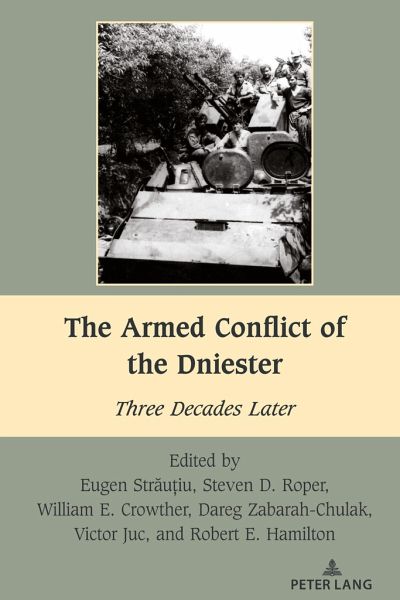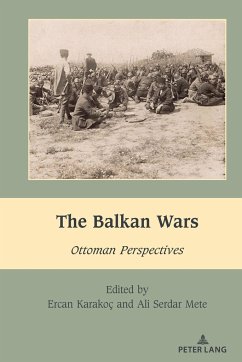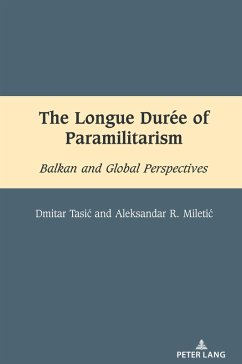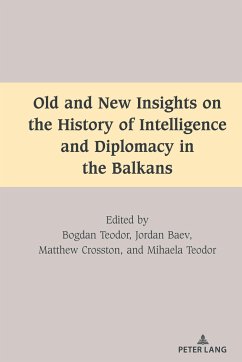
The Armed Conflict of the Dniester
Three Decades Later
Herausgegeben: Roper, Steven D.; Crowther, William E.; ZABARAH-CHULAK, DAREG; JUC, VICTOR; HAMILTON, ROBERT E.; Dragnea, Mihai; Strau_iu, Eugen
Versandkostenfrei!
Versandfertig in 6-10 Tagen
84,95 €
inkl. MwSt.
Weitere Ausgaben:

PAYBACK Punkte
0 °P sammeln!
Published to mark the three decades of a war whose grievances have never been satisfactorily resolved, The Armed Conflict of the Dniester: Three Decades Later brings together an international team of experts to discuss the causes and repercussions of the military operations carried out in 1992. Against the backdrop of the collapse of the Soviet Union, the region of Transnistria-a strip of land between the Dniester river and the Ukrainian border-proclaimed independence from Moldova in 1990. In a development with notable contemporary resonances, the separatist movement was backed by Moscow, lead...
Published to mark the three decades of a war whose grievances have never been satisfactorily resolved, The Armed Conflict of the Dniester: Three Decades Later brings together an international team of experts to discuss the causes and repercussions of the military operations carried out in 1992. Against the backdrop of the collapse of the Soviet Union, the region of Transnistria-a strip of land between the Dniester river and the Ukrainian border-proclaimed independence from Moldova in 1990. In a development with notable contemporary resonances, the separatist movement was backed by Moscow, leading to intervention by the Russian Fourteenth Army alongside paramilitary formations recruited from former Soviet states. The subsequent conflict with Moldovan forces was brought to an end by the 1992 ceasefire, but few were satifised with the arrangement, and the political status of Transnistria has been unresolved ever since.
This book-the result of collaboration between The Laboratory for the Analysis of the Transnistrian Conict (Lucian Blaga University of Sibiu, Romania) and the Balkan History Association-presents a wide range of voices, and seeks to be non-partisan in its approach. Among the issues it tackles are the political and geopolitical causes of the war; the documentary sources and their analysis; quantitative and qualitative evaluation of the combat forces, their levels of training and professionalism, command structures, tactics, weapons, and equipment; the organization and actions of the paramilitaries; the interests of Russia, Moldova, and other international actors, and their political and military actions; and finally the political and patriotic capital generated by the war.
The book will be useful to scholars and students, but also to all those involved in the observation and regulation of the Dniester conflict. Finally, anyone interested in the evolution and status of 'frozen conflicts'-particularly in light of recent events in Ukraine-will find much of interest.
This book-the result of collaboration between The Laboratory for the Analysis of the Transnistrian Conict (Lucian Blaga University of Sibiu, Romania) and the Balkan History Association-presents a wide range of voices, and seeks to be non-partisan in its approach. Among the issues it tackles are the political and geopolitical causes of the war; the documentary sources and their analysis; quantitative and qualitative evaluation of the combat forces, their levels of training and professionalism, command structures, tactics, weapons, and equipment; the organization and actions of the paramilitaries; the interests of Russia, Moldova, and other international actors, and their political and military actions; and finally the political and patriotic capital generated by the war.
The book will be useful to scholars and students, but also to all those involved in the observation and regulation of the Dniester conflict. Finally, anyone interested in the evolution and status of 'frozen conflicts'-particularly in light of recent events in Ukraine-will find much of interest.














